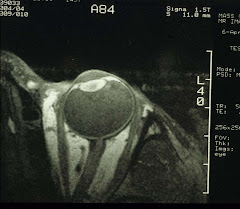Such a great topic for fMRI study of the brain, too. Perhaps when they think, scientists and poets activate different areas of their brains, and the areas do not usually overlap. If true, then Galileo would not have been able to do the following:
"If Galileo had said in verse that the world moved, the inquisition might have let him alone." ~Thomas Hardy OM (1840-1928)
Often the progress in science results in unintended cultural consequences. A good example is cited here:
 The above is a poem celebrating the mid-autumn moon. It was written by Su Shi (蘇軾,1037-1101) invoking the Chinese folklore of Chang-Er (嫦蛾) who flew to and resided on the moon - after eating a Heavenly Peach. In 1969, Neil Armstrong's a "giant leap for mankind" moon-landing spoiled it for all, forever.
The above is a poem celebrating the mid-autumn moon. It was written by Su Shi (蘇軾,1037-1101) invoking the Chinese folklore of Chang-Er (嫦蛾) who flew to and resided on the moon - after eating a Heavenly Peach. In 1969, Neil Armstrong's a "giant leap for mankind" moon-landing spoiled it for all, forever. This poem still retains its popularity; however, now only the last stanza makes sense, i.e., the moon is seen/shared by all even if they are separated by a vast distance.
This poem still retains its popularity; however, now only the last stanza makes sense, i.e., the moon is seen/shared by all even if they are separated by a vast distance.The eye in fact figures prominently in numerous poems. Let's see if science has changed anything. We'll now try some American poems:
"Thy fingers make early flowers" by e. e. cummings (1894-1962):
thy whitest feet crisply are straying.
Always
thy moist eyes are at kisses playing,
whose strangeness much
says; singing
(though love be a day)
for which girl art thou flowers bringing?
Moist eyes, huh? See "4.4 Dry eye" and "4.10 Itchy eyes" to understand why some eyes are overly "moist".
"Dust in the Eyes" by Robert Frost (1874-1963):
If, as they say, some dust thrown in my eyes
Will keep my talk from getting overwise,
I'm not the one for putting off the proof.
Let it be overwhelming, off a roof
And round a corner, blizzard snow for dust,
And blind me to a standstill if it must.
The immediate physiological response to dust in the eyes is profuse tearing. This condition often requires flushing the eyes with water or normal saline. Prophylactic antibiotic/anti-inflammatory eyedrops may be needed as well. And if the dust happens to be alkaline in nature, e.g., lime, a quick referral to an eye doctor is not an overwise next move. (On the other hand, blinding snow is obviously harmless, unless you are driving on I-93 North.) For more, see "7.17 Wink, wink".
Some poems about death and the eye are downright spooky:
"I’ve seen a dying eye" by Emily Dickinson (1830-1886):
I've seen a dying eye
Run round and round a room
In search of something, as it seemed,
Then cloudier become;
And then, obscure with fog,
And then be soldered down,
Without disclosing what it be,
'T were blessed to have seen.
Corneal edema immediately before death? This is quite unlikely. Fresh fish have clear eyes which become cloudy with prolonged storage on ice - perhaps this is what Dickinson was referring to? See also: "7.1 Cold fish eye".
"The Hollow Men" by T.S. Eliot (1888-1965):
The eyes are not here
There are no eyes here
In this valley of dying stars
In this hollow valley
This broken jaw of our lost kingdoms
In this last of meeting places
We grope together
And avoid speech
Gathered on this beach of the tumid river
Sightless, unless
The eyes reappear
As the perpetual star
Multifoliate rose
Of death’s twilight kingdom
The hope only
Of empty men.
Transplanting the whole eyes? See "7.21 Never say never?" for details. Plus "7.8 Now you see it, now you don't" just to cover all grounds.
What about poems from the East?
"Fallen flowers" by Li Shan Yin (李商隱, 812/3 - 858AD):
高閣客竟去, 小園花亂飛 (My best friend has just left, the flowers are flying/dispersing in the small garden)
參差連曲陌, 迢遞送斜暉 (From the tortuous paths, I now send off the evening sun)
腸斷未忍掃, 眼穿仍欲歸 (Too sad to sweep off the fallen flowers, still hoping to see the friend's return)
芳心向春盡, 所得是沾衣 (My heart is broken as the abrupt end of Spring, only the petals remain on my clothing)
It can be an accommodation/focusing issue to see so intently. See "7.20 Mr Sulu, take us home" for explanation.
"Wan Shi Sa (浣溪沙)" by Wang Guo Wei (王国维, 1877-1927):
山寺微茫背夕曛,鸟飞不到半山昏.上方孤罄定行云. (In the dim dusk, it was hard to make out the temple, for the birds to fly half-way up the hill; the fleeing clouds were anchored in place by a lone prayer drum)
试上高峰窥皓月,偶开天眼觑红尘,可怜身是眼中人. (I tried to climb up to the mountaintop to peek at the luminous moon, in a blink of the heaven's eye, I could see the world, and realized sadly that I was also part of this world.)
Heaven's eye? The Hubble telescope? Maybe this:
 For less powerful telescopes, see "7.27 Thousand mile eye".
For less powerful telescopes, see "7.27 Thousand mile eye".Clearly, the word "eye" sets off a reaction of clinical interpretation that overtakes the entire poetry. Essentially, the one-tracked mind at work. Although, we suppose Carl Sandburg (1878-1967) was being honest who said, "I've written some poetry I don't understand myself."
More to the point, though, is this:
"You can't write poetry on the computer." ~Quentin Tarantino (1963-present)
(Much less translate.)
In any case, we now call for an fMRI brain study. Poets are invited.










